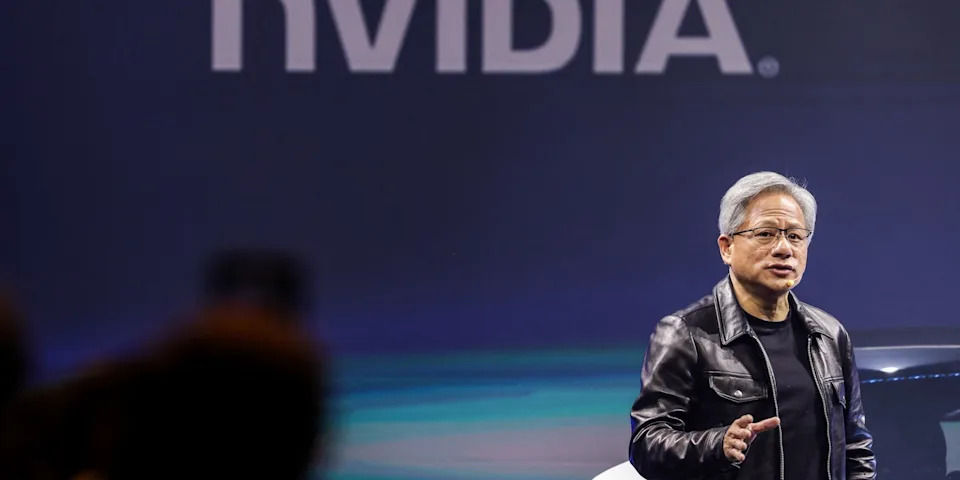
Nvidia stock fell in premarket trading and the Nasdaq was set to open lower on Wednesday after the chip giant warned of a multibillion-dollar hit from Trump Administration restrictions on exporting H20 chips to China.
The government informed Nvidia that special licenses would be needed to sell to Chinese customers for the "indefinite future," the chip giant said in an SEC filing on Tuesday night.
Nvidia said it would take a charge of up to $5.5 billion in its first-quarter earnings, which ends on April 27.
The stock was down 5.8% at 7:00 a.m. ET, and the Nasdaq futures were 1.3% lower. Shares in Jensen Huang 's company had fallen almost 19% this year at Tuesday's close.
Nvidia's H20 chips were specifically made to comply with Biden-era export controls on chips sent to China as the world's superpowers remain in an AI arms race .
The Trump administration sees the license requirements as a means to address the risk of China developing its own supercomputer, Nvidia said in the filing.
Jefferies analysts said the licensing measure was essentially a ban on H20 chips.
"It should be noted that no licenses for GPU shipments into China have ever been granted and that the stated reason is concern over potential use or diversion of these chips for supercomputers in China," analysts led by Blayne Curtis wrote in a Tuesday note.
Bernstein analysts said banning the H20 chip made "little sense."
"H20 performance is low, well below already-available Chinese alternatives. A ban essentially simply hands the Chinese AI market over to Huawei," they wrote in a Wednesday note.
Nvidia declined to comment and the White House did not respond to a request for comment.
Where the charges come from
Nvidia said in the filing the charges could relate to H20 chips that have already been manufactured and now may be more difficult to sell. It would also account for costs related to producing the chip and additional funds that may be needed to cover potential future losses.
The Trump administration has taken steps to pave a way for tariffs on chips , including probes led by the Commerce Department into semiconductor imports. The investigations seek to determine what impacts those imports have on national security, which could give President Donald Trump a reason to implement tariffs on key tech goods.
In general, Trump has said that his tariff strategy is part of a broader effort to encourage domestic manufacturing of key goods. The president is also hoping to use the levies to push China to negotiate a better trade deal with the US, although the specifics around his demands are not clear.
On Monday, Nvidia reiterated its commitment to invest $500 billion over the next four years in the US, promising AI supercomputers and data centers .
The White House promoted the announcement as a win, calling it "the Trump Effect in action."
Competitors fall
In Asia, where Nvidia's supply chain is concentrated, stocks of its suppliers declined on Wednesday.
Japanese testing equipment maker Advantest dropped 6.5% in Tokyo. Shares of semiconductor wafer producers Samsung Electronics and TSMC ended 3.3% and 2.5% lower in Seoul and Taipei, respectively.
Meanwhile, ASML, the Dutch semiconductor equipment maker, fell more than 5% in Amsterdam after missing expectations and warning that tariff uncertainty could hit demand for its products.
Read the original article on Business Insider


